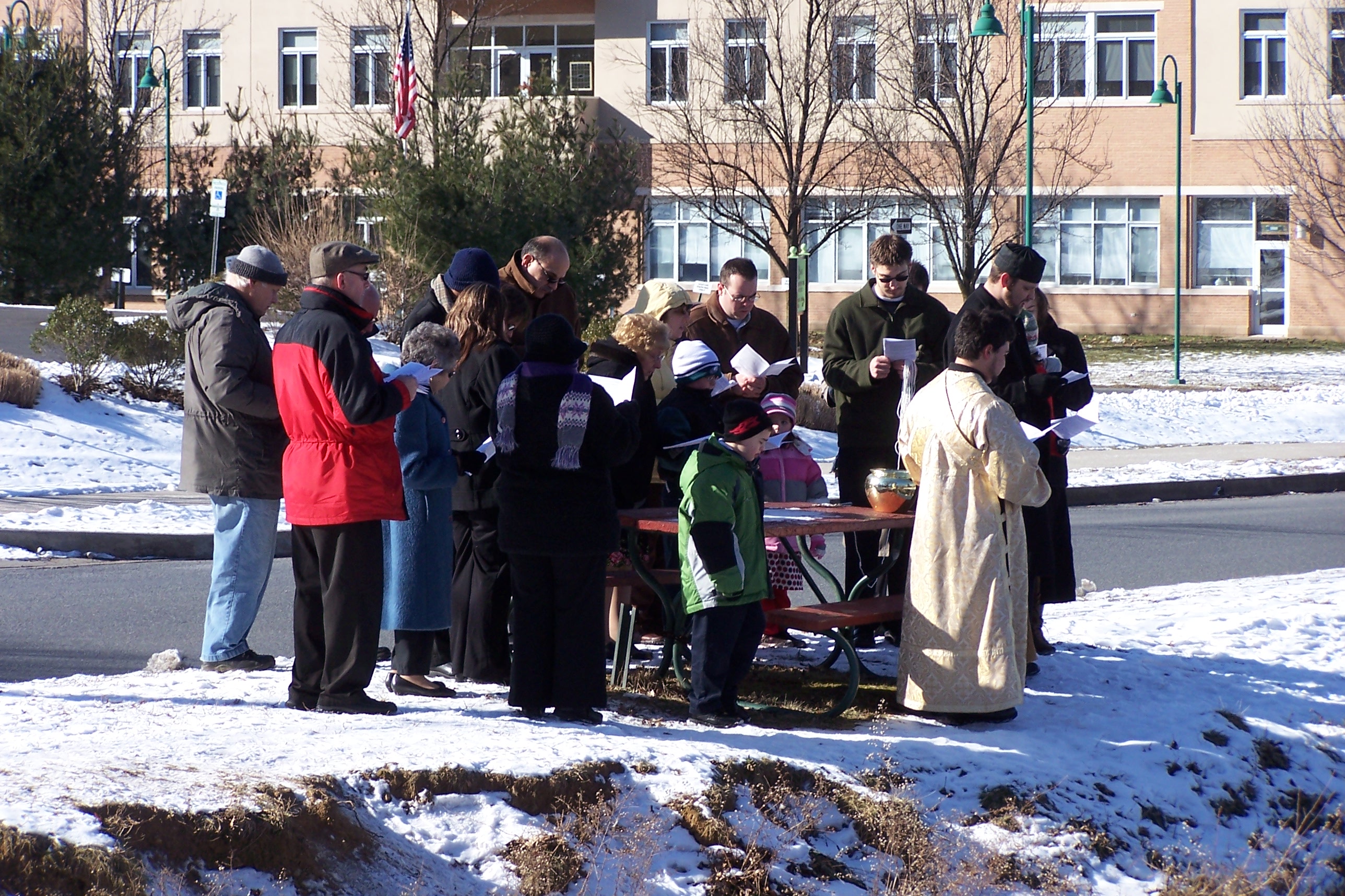Members of the Orthodox Church of Emmaus, Pennsylvania, gather at Furnace Dam Park on S. 10th Street in Emmaus to bless the waters during the 2010 Theophany season. (The building in the background is one of the main sites of the Rodale Institute.)
5 comments:
Comments are closed.





Good evening everybody 🙂
Please excuse an ignorant protestant, but can someone explain the meaning of this ceremony to me? I know so very little about the orthodox faith.
Here’s a helpful explanation from Fr. Thomas Hopko:
That was very helpful. Thank you, father.
Awesome! Did you have any divers? I know there are a few here in the north that go all out…
No, no divers — like the cross, they would have bounced!